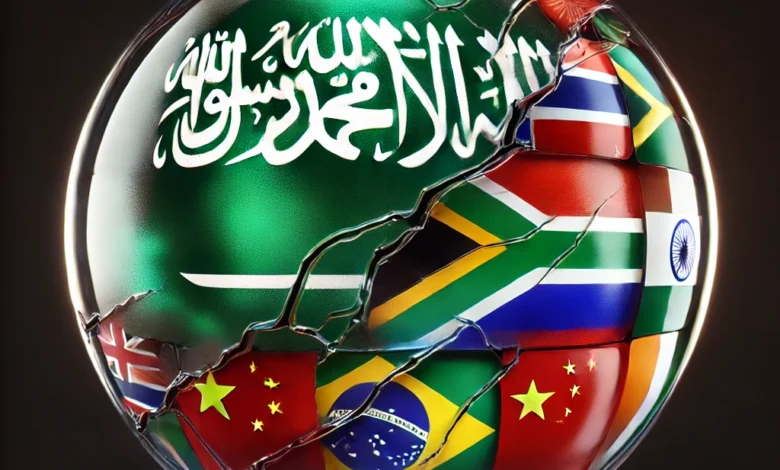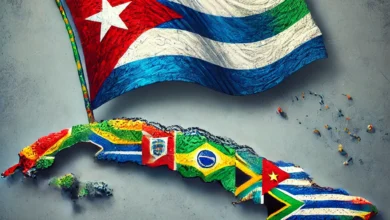Russia Pledges Support for Vietnam’s BRICS Partnership: A Strategic Move in Global Economics

In a significant development for global geopolitics, Russia has announced its commitment to facilitating Vietnam’s inclusion as a “partner country” in the BRICS bloc of emerging economies. This move, confirmed during Russian Prime Minister Mikhail Mishustin’s recent visit to Hanoi, underscores the growing ties between Russia and Vietnam while highlighting BRICS’ expanding influence on the world stage13.
What is BRICS?
BRICS, an acronym for Brazil, Russia, India, China, and South Africa, was established in 2009 as a counterbalance to the G7, the group of advanced industrialized nations. Over the years, BRICS has evolved into a powerful platform for economic cooperation, trade, and investment, advocating for a more multipolar world order. The bloc has recently accelerated its expansion, welcoming Iran, Egypt, Ethiopia, and the United Arab Emirates in 2023, with Saudi Arabia invited to join and Turkey, Azerbaijan, and Malaysia formally applying for membership14.
Russia’s Role in Vietnam’s BRICS Aspirations
During his two-day visit to Hanoi, Russian Prime Minister Mikhail Mishustin emphasized Russia’s readiness to support Vietnam’s active participation in BRICS events and its eventual inclusion as a partner country. A joint statement released after the visit highlighted Russia’s commitment to creating favorable conditions for Vietnam’s integration into the bloc13.
This partnership aligns with Russia’s broader strategy to strengthen ties in Asia, particularly as it faces increasing international isolation due to its ongoing conflict in Ukraine. By bolstering relationships with countries like Vietnam, Russia aims to offset its geopolitical challenges and expand its influence in the region710.
Vietnam’s Cautious Approach
Despite Russia’s support, Vietnam remains cautious about fully committing to BRICS membership. Analysts suggest that Hanoi is weighing the potential benefits against the risks, particularly in light of its strong economic ties with the United States. Vietnam is one of the largest exporters to the U.S., with bilateral trade reaching $142.1 billion in 2022. The recent election of Donald Trump, who has hinted at imposing tariffs on Vietnamese goods, adds another layer of complexity to Hanoi’s decision-making process711.
Nguyen Khac Giang, a visiting fellow at Singapore’s ISEAS–Yusof Ishak Institute, noted that Vietnam’s hesitation stems from concerns over how its relationship with the U.S. might be affected by joining BRICS. “The benefits are not that substantial for Hanoi to take such a risk,” he said14.
Economic and Strategic Implications
For Vietnam, becoming a BRICS partner country could open new avenues for trade, investment, and technological collaboration. The bloc’s New Development Bank (NDB) offers funding for infrastructure and sustainable development projects, which could help address Vietnam’s pressing economic needs711.
Moreover, Vietnam’s participation in BRICS aligns with its broader foreign policy goals of diversifying partnerships and enhancing its global standing. The country has already demonstrated its commitment to multilateralism by actively participating in BRICS events, including the 2024 BRICS Plus/Outreach summit in Kazan, Russia12.
A Broader Shift in Global Dynamics
Vietnam’s potential inclusion in BRICS reflects a broader trend of emerging economies seeking to reshape the global economic order. As BRICS continues to expand, its emphasis on de-dollarization, local currency trade, and multilateral cooperation challenges the dominance of traditional Western-led institutions like the IMF and World Bank711.
For Russia, supporting Vietnam’s BRICS aspirations is part of a larger strategy to strengthen its presence in Southeast Asia and counterbalance its isolation in the West. The two countries have also agreed to expand cooperation in nuclear energy, with Russia pledging to assist in building Vietnam’s national nuclear power industry110.
Conclusion
Russia’s endorsement of Vietnam’s BRICS partnership marks a significant step in the evolving relationship between the two nations. For Vietnam, this move offers both opportunities and challenges as it navigates its position between major global powers. As BRICS continues to grow, its partnership with Vietnam could pave the way for deeper economic and strategic collaboration, contributing to a more balanced and inclusive global order.

